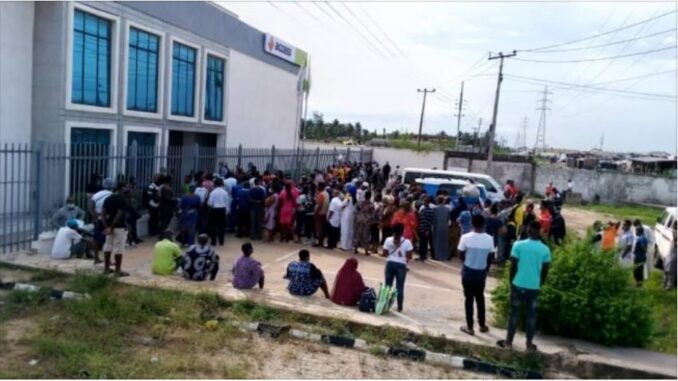
In Nigeria, home and online schooling are fancy words like lasagna and cappuccino. It sounds exotic, looks expensive, but doesn’t taste like Jollof. You buy it because you’ve followed friends out, you’re seating in an open restaurant on a pier with the evening breeze in your face somewhere around Victoria Island; you know you can afford it once or twice if stretched, but not every day.
Home and online schooling requires time, money and skills that Nigerian parents do not have and will not invest in any time soon. Online classes mean data, power supply and enough patience. Add this to the fact that you have no job or income that can fund this new reality. That’s a whole lot of fancy. Yes, some parents are warming up to the idea and even pretending to attempt it, but there are not a whole lot of Nigerian parents that will dedicate four hours to teaching their children.
Of a truth, the lockdown, curfew, restriction of movement is hurting a lot of businesses and when you hurt a person’s source of income, you really can’t expect him or her to understand anything no matter rational the conversation is. Nigeria gives no room for anything beyond survival; thus, decisions that affect income are hard to have. The closure of schools, religious and social gatherings have rendered millions of Nigerians out of employment. The effects are exacerbated when you factor in the absence of palliatives. If the government cannot provide a tenth of what a person earns by way of palliatives, it makes no sense.
Religious events are the backbone of the printing industry in Nigeria. The church in particular is the largest consumer of print consumables in Nigeria. For most printers (Muslim, Christian, atheist etc), the continued closure of religious organisations is detrimental to survival. I work in this industry and the reality is the demise of businesses. I learnt that some offices stayed opened all through the lockdown, people opened up shop even when there were no clients to serve and money to earn. The thoughts of staying home with excuses couldn’t be fathomed, they’d rather take chances with an unseen virus than stay home with visible dependents that will harangue them for sustenance.
How about social gatherings? That is an industry that is worth hundreds of billions of dollars. This industry is responsible for the existence of tailors, bridal shops, event planners, make-up artistes, decorators, caterers, drinks vendors, ushers, ponmo and fried meat vendors, desserts with fancy name vendors, gele ‘tiers’ and a host of other brands offering anything and everything. How do we account for the beer palours and restaurants? The viewing centers and betting shops? How about Nollywood and the cinemas?
I, like most cynical Nigerians, have been inundated with data – scientific, non-scientific as well as conspiracies. One thing is clear; this virus is real. What is debatable is the fatality in Nigeria and its correlation to shutting down a weak economy like ours. While the government seem to be doing what it says it thinks is the best, it is not coming up with a plan, the Nigerian government is all too happy with copying and pasting whatever is popular. There is no plan.
This approach is entirely wrong because it is not applying solutions peculiar to our own statistics, it is rather pandering to a politically correct solution. I think we should begin to tell ourselves some truths rather than continue to drain the economy. We need to establish the fact that Nigeria cannot afford a continuous shut down of the economy. Solutions have to be tailored to our own reality.
At the onset, locking down seemed like a smart move, but as it is, we are grasping at unnecessary straws. While we lockdown, are we developing a cure or a vaccine? Are we simply waiting for a knight in western armour to swoop in for a rescue mission? These are questions that the government isn’t answering. The task force on COVID-19 doesn’t have the credentials to answer the questions that will define a path in a post COVID-19 society. The ministers of Education, Trade, Investment, Science, Labour and Employment aren’t communicating next steps.
We can’t go on this way, there has to be a plan.
END

Be the first to comment